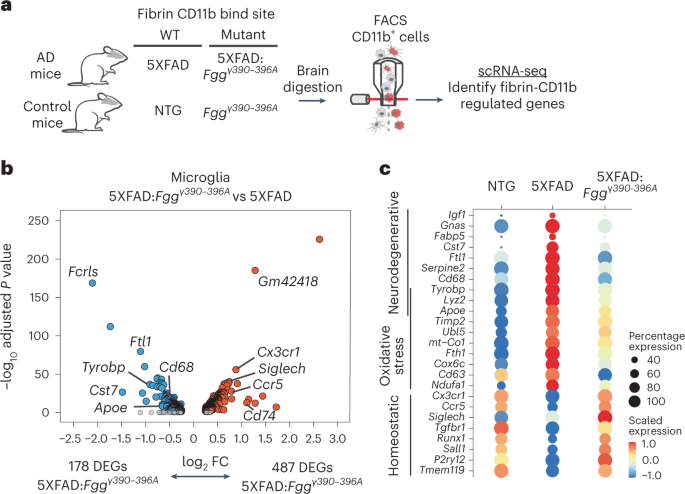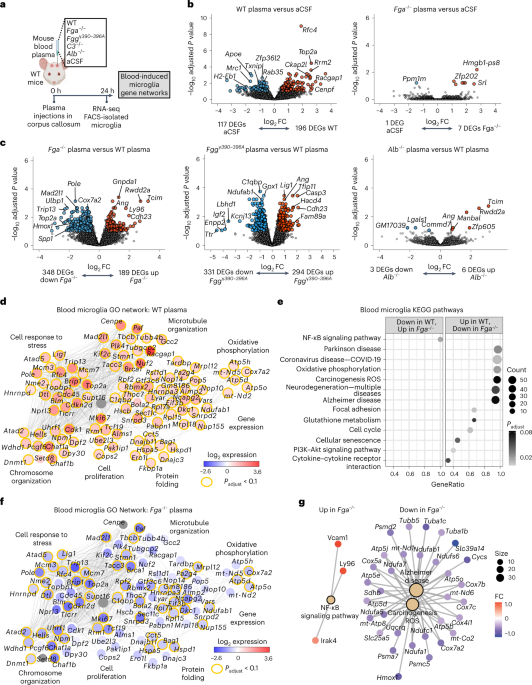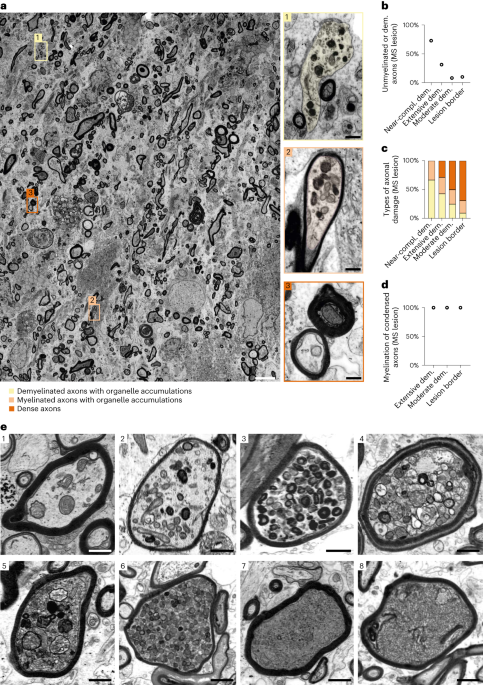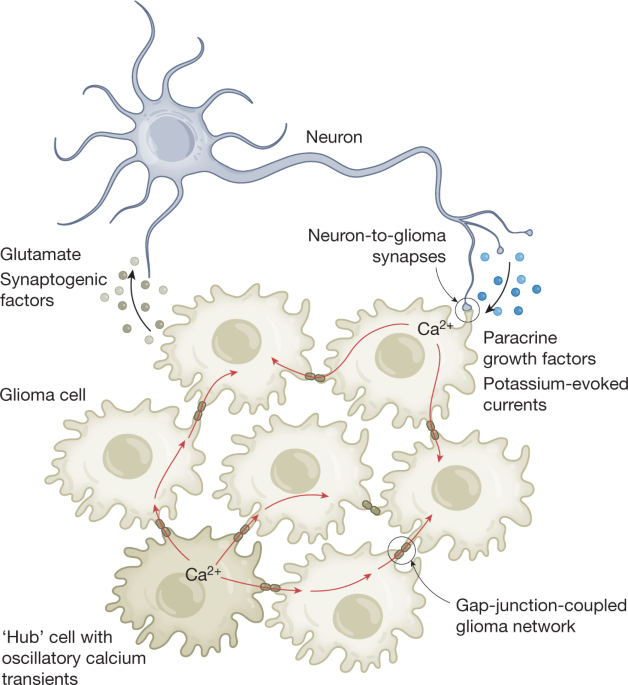A collection of personally recommended research articles:
Fibrin promotes oxidative stress and neuronal loss in traumatic brain injury via innate immune activation - Journal of Neuroinflammation
Background Traumatic brain injury (TBI) causes significant blood-brain barrier (BBB) breakdown, resulting in the extravasation of blood proteins into the brain. The impact of blood proteins, especially fibrinogen, on inflammation and neurodegeneration post-TBI is not fully understood, highlighting a critical gap in our comprehension of TBI pathology and its connection to innate immune activation. Methods We combined vascular casting with 3D imaging of solvent-cleared organs (uDISCO) to study the spatial distribution of the blood coagulation protein fibrinogen in large, intact brain volumes and assessed the temporal regulation of the fibrin(ogen) deposition by immunohistochemistry in a murine model of TBI. Fibrin(ogen) deposition and innate immune cell markers were co-localized by immunohistochemistry in mouse and human brains after TBI. We assessed the role of fibrinogen in TBI using unbiased transcriptomics, flow cytometry and immunohistochemistry for innate immune and neuronal markers in Fggγ390–396A knock-in mice, which express a mutant fibrinogen that retains normal clotting function, but lacks the γ390–396 binding motif to CD11b/CD18 integrin receptor. Results We show that cerebral fibrinogen deposits were associated with activated innate immune cells in both human and murine TBI. Genetic elimination of fibrin-CD11b interaction reduced peripheral monocyte recruitment and the activation of inflammatory and reactive oxygen species (ROS) gene pathways in microglia and macrophages after TBI. Blockade of the fibrin-CD11b interaction was also protective from oxidative stress damage and cortical loss after TBI. Conclusions These data suggest that fibrinogen is a regulator of innate immune activation and neurodegeneration in TBI. Abrogating post-injury neuroinflammation by selective blockade of fibrin’s inflammatory functions may have implications for long-term neurologic recovery following brain trauma.

Blood–brain barrier disruption and sustained systemic inflammation in individuals with long COVID-associated cognitive impairment - Nature Neuroscience
Long COVID is a major public health issue since 2020 and exhibits frequent neurological symptoms. Greene et al. propose that brain fog results from leaky brain blood vessels and a hyperactive immune system, shedding light on this phenomenon.

Predictive IDH Genotyping Based on the Evaluation of Spatial Metabolic Heterogeneity by Compartmental Uptake Characteristics in Preoperative Glioma Using 18F-FET PET
Molecular markers are of increasing importance for classifying, treating, and determining the prognosis for central nervous system tumors. Isocitrate dehydrogenase (IDH) is a critical regulator of glucose and amino acid metabolism. Our objective was to investigate metabolic reprogramming of glioma u…

Distinct molecular profiles of skull bone marrow in health and neurological disorders - PubMed
The bone marrow in the skull is important for shaping immune responses in the brain and meninges, but its molecular makeup among bones and relevance in human diseases remain unclear. Here, we show that the mouse skull has the most distinct transcriptomic profile compared with other bones in states o…

Fibrin induces neurotoxic microglia gene programs in neurodegeneration - Nature Immunology
Extravasation of blood into the brain and activation of innate immune cells are hallmarks and therapeutic targets in neurological diseases. We show that specific blood proteins induce distinct receptor-mediated gene programs in microglia and that the blood coagulation protein fibrin has a causal rol…

Defining blood-induced microglia functions in neurodegeneration through multiomic profiling - Nature Immunology
Akassoglou and colleagues provide a single-cell RNA sequencing and phosphoprotein analysis of the responses of central nervous system microglia and macrophages to blood proteins including activated complement and fibrin. Their findings point to potential therapeutic targeting of microglia activation…

Myelin insulation as a risk factor for axonal degeneration in autoimmune demyelinating disease - Nature Neuroscience
Myelin is widely believed to protect axons from damage in multiple sclerosis. The authors challenge this view and find that myelin insulation renders axons more vulnerable to degeneration in an autoimmune environment.

The neuroscience of cancer - Nature
This Review examines the interplay between the nervous system and tumours, from cancer initiation to progression and metastasis.





